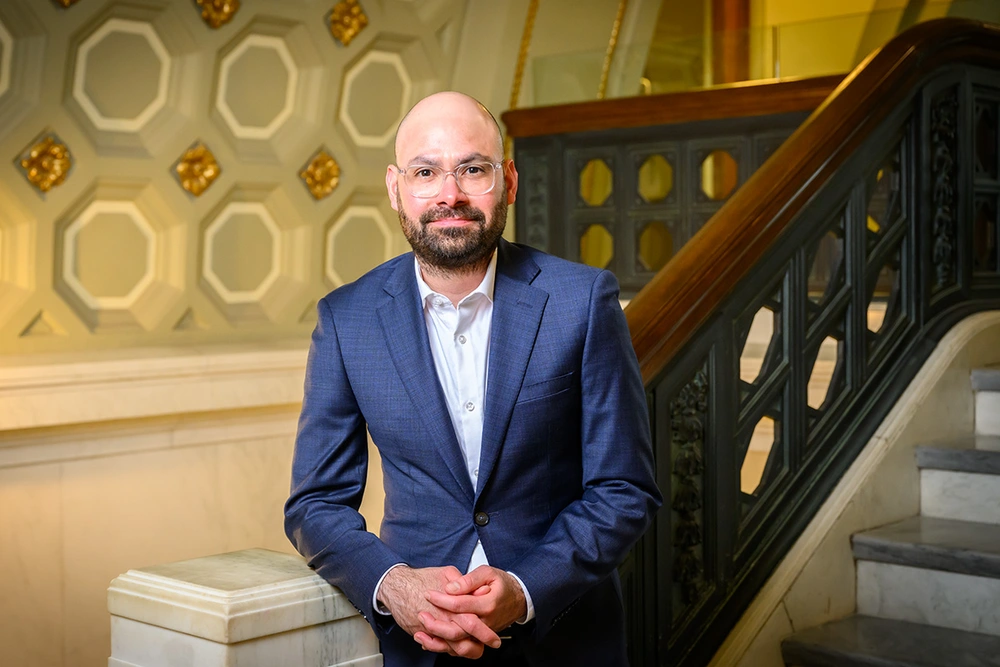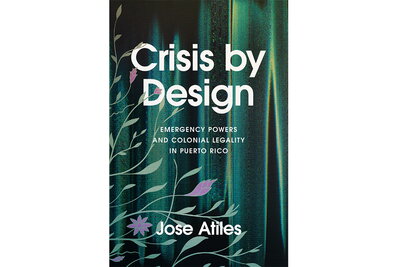
Powerful hurricanes, the COVID-19 pandemic, spiraling public debt and political corruption triggered humanitarian, economic and environmental crises in Puerto Rico. However, a new book suggests that the Puerto Rican and U.S. governments made these multilayered crises catastrophic through the socioeconomic, legal and racialized structures and conditions they created.
Crisis by Design: Emergency Powers and Colonial Legality in Puerto Rico, by author Jose Atiles, a sociology professor and College of Law affiliate at the University of Illinois Urbana-Champaign, explores the legal and political structures in Puerto Rico that created and perpetuated a permanent state of emergency, inflicting a multiplicity of harms on its most vulnerable populations.
Atiles draws on the works of Puerto Rican scholars and activists who “demonstrated that colonialism paired with contemporary austerity measures and governmental negligence are critical factors contributing to the social and political disasters that are anything but ‘natural.’

“We should not consider crises or disasters as dissociated from sociopolitical and historical reality,” Atiles said. “We often think about dealing with disasters and crises as bad luck or poor management when, in reality, structural forces determine the impact of those events.”
Published by Stanford University Press, the book is based on eight years of Atiles’ research, including his interviews with the directors of the Puerto Rican government’s accountability and compliance agencies, lawyers and legislators. He also spoke with investigative journalists and activists with civic organizations seeking to interrupt the system of wealth extraction through legal mobilization and litigation.
The use of emergency powers by the federal, state and local officials during the COVID-19 pandemic made patently clear the dramatic impact that a prolonged state of emergency has on people’s lives, Atiles said.
He said that one of his purposes in writing the book was to encourage readers “to consider the role of law in shaping people’s lives and social reality in ways that have been taken for granted or unexamined, at least in Puerto Rico. My goal was to show that emergency powers are not just about COVID-19, but they have a historical and a structural force that has been in place since the beginning of colonialism.”
Atiles — who also holds appointments in the departments of political science and Latina/Latino studies at Illinois — works with several civil society organizations through the Transparency Network, a consortium of nonprofit organizations and people with specialized knowledge that advocate for open government, access to information and justice.
In the book, the author explores the ramifications of laws such as the Puerto Rican Oversight, Management and Economic Stability Act of 2016, which U.S. officials imposed on Puerto Rico to address the public debt and economic crisis that started in 2006.
PROMESA included legislative reforms that suspended democratic practices and abandoned economic policies that had served Puerto Rico well for years, promoting governance through the permanent use of emergency powers, according to Atiles. These measures prioritized U.S. interests by seizing control of Puerto Rico’s resources, promoting wealth extraction and exploitation rather than economic development and empowerment, he said.
“Although PROMESA might have intended to address a crisis, it ended up harming Puerto Rico’s economy and people,” Atiles said. “The U.S. Congress continuously made such decisions without considering the voice and needs of Puerto Ricans.”
The book also explores Puerto Rico’s history of anticorruption laws and executive orders such as those enacted under former Gov. Ricardo Rosselló’s administration, which Atiles said served as façades for addressing wrongdoing while normalizing systemic corruption that enriched corporations and local elites at the expense of the public good.
The Transparency Network has mobilized the Puerto Rican and federal legal systems and taken cases to the U.S. Supreme Court to curtail the brutal force of colonial legality, Atiles wrote.
The author advocates Puerto Rico’s emancipation from its colonial relationship with the U.S. so that its residents can exercise greater control over their government, economy and recovery from future natural disasters and domestic crises.
“The prevailing sentiment among Puerto Ricans is that both the Puerto Rican and U.S. governments have been negligent and incapable of adequately meeting people’s needs,” Atiles writes. “After enduring a multilayered crisis for years, Puerto Ricans no longer want their suffering to be romanticized as resilient; they demand a just and equitable recovery.”
Editor's note: The story originally appeared on the University of Illinois News Bureau website